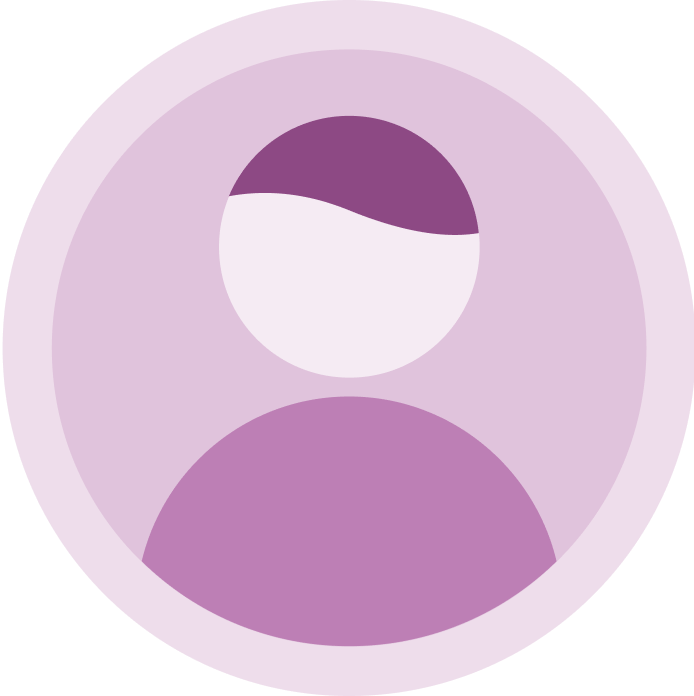summary
In recent years, there has been an increase in premature births. Premature babies are born with an immature nervous system.
They are at high risk for various developmental disorders, which may appear immediately after birth and also throughout life.
The article provides information on the causes and risk factors for neurodevelopmental disorders in premature babies, emphasizing the importance of early identification and treatment of developmental disorders in premature babies.
Parents of premature babies may develop emotional difficulties, such as anxiety and depression after birth. Early identification and treatment of these difficulties in parents improves the development of premature babies and the functioning of the parents.
Why is the number of premature babies increasing in the population?
In recent years, the incidence of multiple pregnancies and births, as well as premature births, has increased, due to improvements in fertility medicine and the increase in gestational age. Today, more premature babies are born, and modern medicine knows how to preserve them and increase their survival after birth.
What is the incidence of premature births?
In Israel, one in ten births is premature. This amounts to 14,000 premature births each year.
What is different about the nervous system of premature babies?
Because premature babies are born before week 36, they miss out on the time it takes for their nervous system to mature, which usually happens in the womb. As a result, they are born with an immature brain, which is the main cause of various neurological complications.
In the last trimester of pregnancy, the brain volume increases 4-5 times. During this time, both the white matter in the brain (fibers that transmit information between cells) and the gray matter in the brain (cells called neurons) develop. Therefore, in premature babies, the brain is smaller, the white matter is immature, the blood vessels are very sensitive, and bleeding in the nervous system may develop.
Neurological complications of premature babies after birth
After birth, premature babies can suffer from neurological complications such as bleeding in the ventricles of the brain, disruption of white matter tissue, resulting in seizures or infections in the nervous system.
These complications are particularly common in very small premature babies, those born with a weight of less than 1500 grams or those born very early (before week 34 of pregnancy).
In premature babies born at later weeks, the risk of developing these complications is lower.
Usually, premature babies with neurological complications will stay in the neonatal intensive care unit.
Premature babies who have suffered from severe neurological complications are at risk for neurodevelopmental disorders throughout life.
Neurodevelopmental complications and developmental difficulties
About half of premature babies suffer from various neurodevelopmental complications. On the other hand, about half of premature babies develop according to their age, like children born at term!
10-15 percent of premature babies are diagnosed with cerebral palsy or autism spectrum disorder, or epilepsy.
3-4 percent of premature babies suffer from a vision or hearing disorder.
It should be noted that even premature babies who have not experienced neurological complications after birth may suffer from various, but milder, developmental problems. For example: motor difficulties, clumsiness, language difficulties, learning disabilities, attention deficit hyperactivity disorder, and difficulty with sensory regulation. Premature babies are also at risk for developing emotional, social, and behavioral difficulties.
The consequences of premature babies can also be seen in adult life. Several studies have shown lower levels of academic achievement, independent living, monthly income, and steady employment among adults who were born prematurely compared to those born at term. In contrast, other studies show that despite the risk of neurodevelopmental difficulties, adults who were born prematurely overcome these difficulties and become functional adults at a similar rate to other adults.
How can neurodevelopmental complications be prevented?
The first and most important prevention is an effort to reach delivery at the end of a full pregnancy.
In Israel, there is close monitoring for pregnant women. Pregnancy monitoring provides a tailored response for the woman, helps prevent complications and premature births. It is very important to begin medical monitoring in the early stages of pregnancy and to be sure to follow the doctor’s recommendations.
In pregnancies at risk of premature birth, the woman is monitored and tests and sometimes various treatments are required.
(For example, steroid treatment that helps mature the fetus’s lungs and prevent cerebral hemorrhages).
Second prevention – proper treatment after birth.
If a premature baby is born, proper treatment in the premature care unit helps prevent immediate complications after birth. Maintaining an appropriate temperature, breathing techniques, special medical procedures that protect the brain and medications that prevent bleeding and seizures, maintaining the various body systems (cardiac, digestive, respiratory, renal, etc.).
Can parents help a premature baby's brain development?
The human brain needs various stimuli for its development, such as: visual, auditory, tactile (= sensory) stimuli. These stimuli must be given in an appropriate amount and intensity. Premature babies are unable to control their body temperature and are therefore kept in closed incubators and are not exposed to human sounds. In addition, they receive a lot of painful treatments, are exposed to strong light, to the noise of devices in intensive care units. At the same time, they are less exposed to their parents’ faces, their parents’ voices or their touch. All of these are very important for cognitive development and emotional development.
The department tries to maintain daylight and darkness at night, consolidate all painful tests into short periods of time, use sugar to prevent the feeling of pain, and so on.
Parents have a very important role from the beginning of life. Many studies report that close contact (skin to skin), listening to the parent’s voice, and close face-to-face contact with the parent are very important for the development of premature babies.
Many premature baby care departments in Israel use the “kangaroo” method, which allows direct skin-to-skin contact between the baby and the parent. This helps develop direct interaction between the parent and the baby, contributes to building a future bond, and also prevents emotional difficulties for parents.
Emotional complications in parents of premature babies
Premature birth is a traumatic event not only for babies, but also for parents and, in fact, the entire family. It is known that parents of premature babies also often suffer from emotional difficulties, such as anxiety or depression after birth. These emotional disorders may interfere with proper care of the child, disrupt the functioning of the parents or even cause difficulty in establishing a good relationship between the parent and the child in the future. They may also lead to developmental difficulties in the children.
It is very important to identify signs of emotional difficulties in parents after birth and refer them for proper treatment.
State of Israel guidelines for monitoring premature babies
The Ministry of Health of the State of Israel understands the importance of preventing complications of miscarriage for all parties involved. According to the Ministry of Health guidelines, any premature baby born before 32 weeks of gestation and/or with a birth weight of less than 1500 grams or who has been defined as “complex premature” by a neonatologist, needs treatment and developmental monitoring for about a month after discharge from the preterm care unit.
A baby born from 32 to 36 weeks of gestation and with a birth weight of over 1500 grams needs developmental monitoring within 3 months after discharge.
The monitoring includes: monitoring by a developmental doctor, physiotherapist, dietitian and social worker. Multi-team work is important for early identification of developmental disorders and correct treatment according to the difficulties.
Preterm follow-up clinics are generally located in the hospital, so there is consistency in follow-up after discharge from the preterm care unit and in the community.
The preterm baby clinic where I work, at Clalit Health Insurance, is a multi-team clinic. In this clinic, the premature baby and his family are monitored even after Age two, the clinic offers multidisciplinary assessment and treatment services for all difficulties: emotional, nutritional, motor, language and social. We believe that the multidisciplinary response under one roof in the community is the right model to address the needs of the premature infant and his family.
Summary
Given the increase in the incidence of premature births and the improvement of the ability to cope with the complications associated with premature births, there is great importance for multi-team monitoring and dealing with the difficulties and challenges that premature births pose to us, while providing assistance to the premature baby and his family over the years.
Glossary
Preterm –A baby born before 36 weeks of pregnancy
Epilepsy –A disease that causes seizures in the brain.
White matter –A vital component of the nervous system, associated with the efficient transmission of nerve impulses in the brain.
Gray matter – The cells=neurons that make up the structures of the brain
Neontologist -A doctor who specializes in the care of newborns and premature babies.
Sources:
1. חוזר מנהל הרופאה ,משרד הבירות מס 20/2016,15.11.2016
2. Long term impact of pretem birh.Neurodevelopmental and Physical health outcomes.Clin Perinatology 44(2017).
3. Do healthy preterm children need neurophysiological follow-up? Preschool outcomes compared with term peers.Developmental medicine and child neurology 2010.
4. Neurodevelopmental follow –up od pretem infants.What is new? McGowan,Vohr.Pediatric Clin N Am 66(2019).
5. Biological and social influences on the neurodevelopmental outcomes of preterm infats.A.C.Burnett.Cli Perinatology 45(2018).








